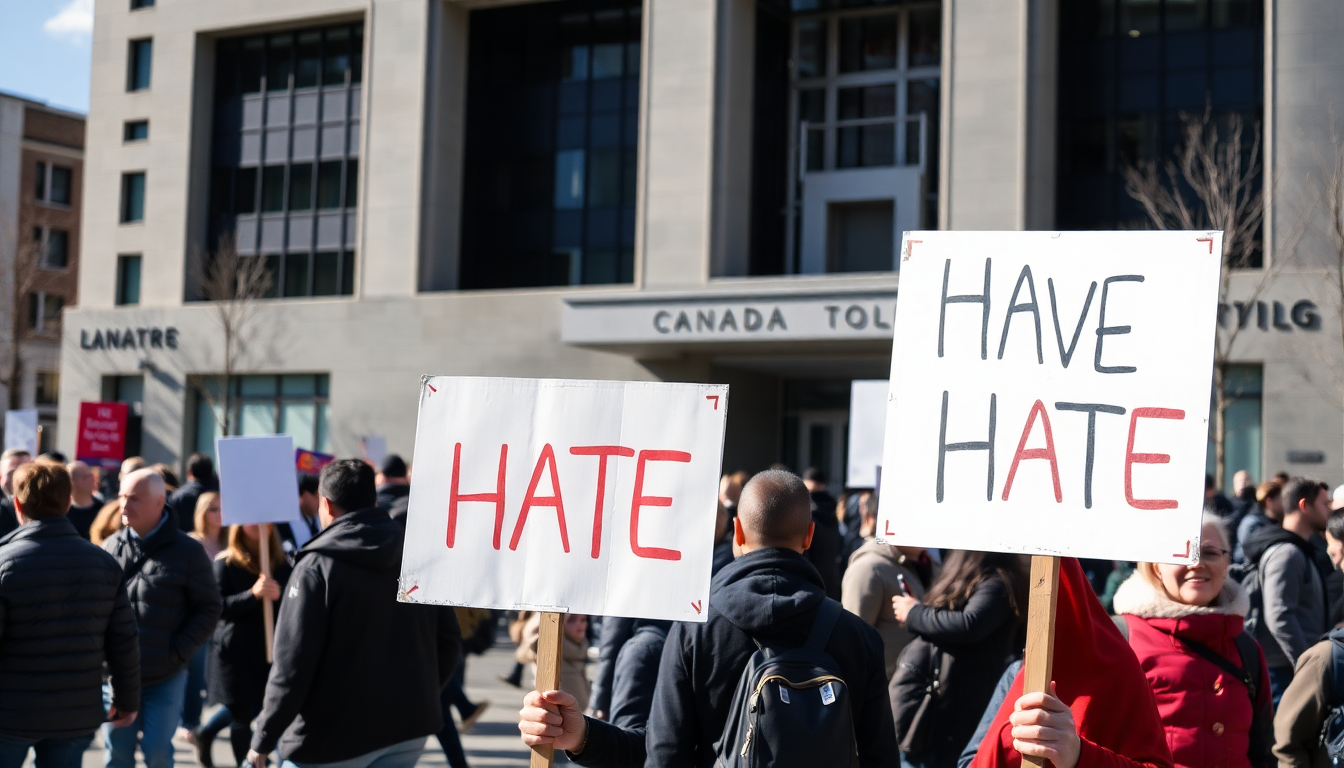Table of Contents
The recent decision by a British Columbia MLA to pursue a private prosecution against a woman accused of promoting hate speech has sparked considerable debate and drawn a lot of attention. At the heart of this case is a complex issue—how do we effectively tackle hate speech in Canada? This situation raises important questions about the responsibilities of our justice system and the ongoing frustrations many communities feel regarding what they see as a lack of action from the authorities.
Background of the Case
Charlotte Kates, who serves as the international director of the Samidoun Palestinian Prisoner Solidarity Network, is facing serious accusations following her comments during a speech at the Vancouver Art Gallery on April 29, 2024. During her address, Kates reportedly praised a Hamas attack on Israel, calling it ‘heroic and brave,’ and led attendees in a chant of ‘Long live Oct.
7.’ Such remarks, especially given her organization’s controversial background, have triggered a significant backlash, particularly from Jewish communities that are deeply concerned about issues of hate speech and antisemitism.
After a police investigation, authorities recommended charges against Kates for willful promotion of hatred and public incitement.
Yet here we are, over a year later, and many are questioning the delay in the prosecution’s decision. This prolonged limbo has left communities feeling vulnerable and frustrated with the justice system’s ability to respond effectively to hate speech incidents.
Why does it take so long to see justice served?
The Political Implications of Private Prosecution
In light of the ongoing situation, OneBC party Leader Dallas Brodie has announced her intention to file a private prosecution against Kates. Brodie believes this legal action is a fundamental right for citizens and feels confident that the justice system will handle the matter appropriately.
Her move resonates with many who are fed up with the slow pace of the official legal process—could this be a way to push for change?
However, the road ahead isn’t without obstacles. Legal experts have voiced concerns about the feasibility of Brodie’s private prosecution.
Former Crown prosecutor Rob Dhanu pointed out that while the right to initiate such a prosecution exists, it comes with many challenges. He has described Brodie’s actions as ‘political theatre,’ suggesting that success may be unlikely given the ongoing police investigations and the complexities involved.
Still, pursuing a private prosecution might serve a larger purpose: shining a spotlight on government inaction and reigniting essential discussions about hate speech laws in Canada. Perhaps Brodie’s actions could pressure authorities to speed up their decision-making processes, ultimately leading to a more effective response to community concerns.
The Role of the Justice System
Meanwhile, the B.C. Attorney General’s office has remained relatively mum on the issue, stating that the proposed terrorism charges fall under federal jurisdiction. This response underscores the complicated nature of legal proceedings in hate speech cases, which can straddle both provincial and federal lines. The BC Prosecution Service has indicated that the matter is still being assessed, leaving many in the community uncertain about when a resolution might come.
This unfolding situation highlights the delicate balance between freedom of speech and the need to protect communities from hate speech and incitement. The legal system must tread carefully, ensuring justice while respecting individuals’ rights to express their opinions. The outcome of this case could set a significant precedent for how Canada deals with hate speech and the responsibilities of its legal institutions.
In conclusion, the private prosecution against Kates stands as a pivotal case study in the complexities surrounding hate speech in Canada. It embodies the frustrations of communities seeking justice and reflects the challenges within the legal system to keep pace with societal changes. As the situation develops, all eyes will be on the courts to see how they navigate this sensitive and crucial matter. Are we ready to confront the realities of hate speech, or will we continue to grapple with these challenging issues?





